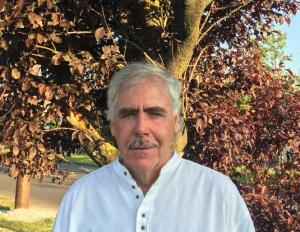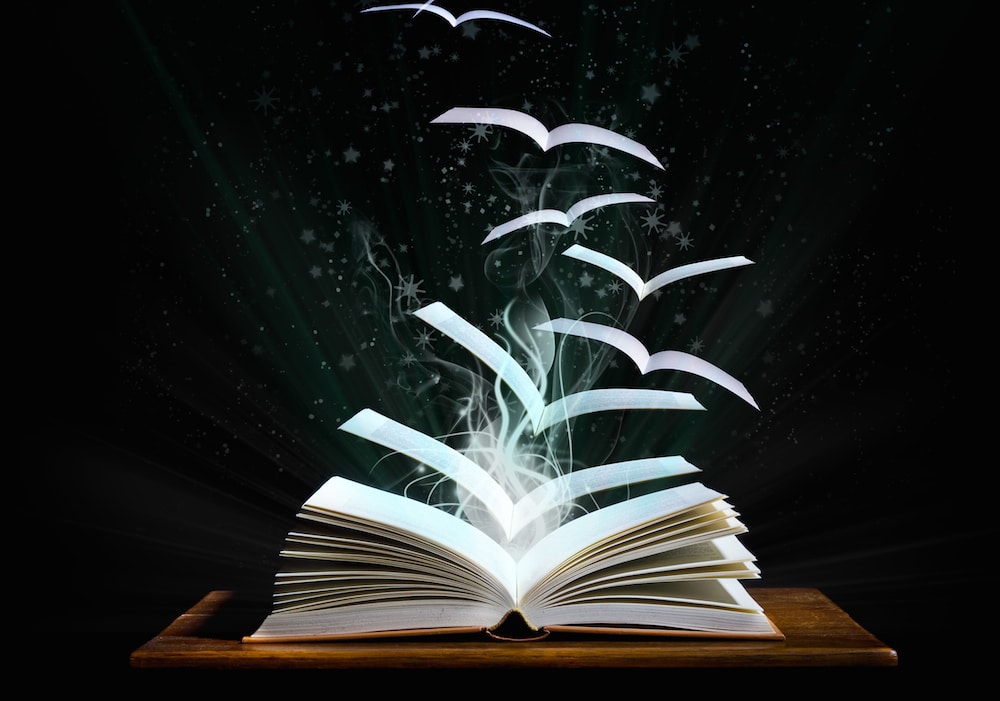by Robert J. Mooney
“The weak would never enter the kingdom of love.”
Gabriel García Márquez, Love in the Time of Cholera
I would substitute the word, “writing,” for the word, “love,” in the above quotation from one of the finest writers of the past century. Writing’s realm is a kind of kingdom in symmetrical relation to so many of the complexities and powers and urgencies of love. How does love survive in times of crisis? How writing? More than that, how can its processes not only survive adversity, but thrive in it as a corrective to the very forces thwarting it?
To the painter Jack B. Yeats (father of the more renown William B.), a work of art is a social act of a solitary man or woman. It’s a lonely enterprise, this compulsion to concoct meaningful experience for others out of language, and then summon the audacity to even try to stage it in distant readers’ heads. For long stretches it is just the writer and the page speaking to each other in quiet backrooms and attics and basements. It’s just you and the screen correcting each other, cajoling, challenging, aggravating, enlightening, depressing, inflating, adding and then subtracting—often what you just added–ad infinitum into a state of mind that feels a little too much like insanity. The writer, Sidney Sheldon, tells us the blank screen is God’s way of telling writers how hard it is to be God. That’s no blasphemy.
The thing is, solitude is not an unfortunate byproduct of the writing process, it is required. Solitude, and plenty of it, is on the syllabus. And yet—and here’s one of the many rubs of writing’s demands–we can’t go it alone and expect to come up with story or poem or play or memoir worth bothering others with. Expression is communal by its very nature. The page isn’t our ultimate destination. Rather, we aim through it as deep into the hearts and minds of others as we can send it, creating, there, the illusion of shared personal experience. If the very act of writing and being read isn’t the creation of community, I don’t know what is. It just doesn’t get more intimate than that—literally getting into the head of another person and being welcome there. We writers are creating a community of imaginations among former strangers. Quite an audacious act, indeed. It involves magic. It entails learning how to cast spells that, however quietly, however privately for the single reader out there, may–wonder of wonders–matter.
So we find or create community within which we can learn the magic, maintain inspiration, master craft. We seek others of like mind and ambition, we courageously come out of the closet of our once-secret ambition, making our dream known and, in doing so, commit to a terrifying enterprise we know a lot less about than we thought. In fact, we come to realize we don’t know what the hell we’re doing—and yet still want to do it. Want to learn and partake, no matter the cost. We need help, and a lot of it. We need others who are as committed and frightened and language-drunk as we are–honest folk with sturdy sensibilities and tough-love generosity helping each other develop and maintain what Hemingway said all writers need to develop and maintain: your own personal built-in shock-proof shit detector. An aesthetic conscience. And we need not only the support and trust of peers, but the guidance of seasoned veterans who at least think they know what they’re doing. The writer who has published, who has some experience negotiating the slings and arrows of outrageous rejection and fame. Thus, programs such as the Maslow Family Graduate Program in Creative Writing at Wilkes University, a vibrant community of writers I am proud to have been a part of from its formation. A place where writers are “there” for each other—in fact, a family—in the feeling of mutual commitment and love of what we are doing together.
Of course, to be in community is to be-with-others, and there have been more times in human history than we care to remember or even want to have heard about when our impulse and need to gather in communion to nurture our growth as writers is severely challenged by forces so far beyond our control that we reel in despair. War, flood, famine, economic depression, plague, tyranny, political repression, forced exile. Hazards that confound life-circumstances that formerly supported us and are suddenly, seemingly, in shambles. We’re in one now. It has a name, but, at the time of this writing, no clear end in sight.
How do writers write in a suddenly altered world? For whom do we write? For whom have we been writing? How do we gather the necessary wits, stay focused, find narrative coherency, sing, when it feels like the world is coming apart? Worse, when we are sent into exile from the wider world into house arrest? When our proximity to one another, our very sense of touch, has been outlawed, our yearning for proximity so thwarted?
Another good question for the writer: how do you not write? Remember your impulse to write comes from within, and remember that the impulse alone—never mind however all the wonderful jazz of its realization—is by itself a gift. A pretty exacting one, a taskmaster, one that thrives in adversity, one that harasses you to a better nature, a higher purpose, by way of very tough love. Ask yourself why you started writing in the first place. Who are you in the desire to write? Again, Garcia Marquez, Love in the Time of Cholera, asks us to think of love “as a state of grace not as a means to anything… but an end in itself.” Again, substitute “writing” for “love.”
There will be an end to this crisis, and your writing will endure beyond that end. Perhaps it is possible to see this pause as an opportunity to meditate more clearly on our being-in-the-world. Who we are, what it’s all about—cornerstones of the writer’s questioning mission. It can also perhaps be an opportunity to step aside for a time from the juggernaut-speed of our age and take advantage of the sudden resultant simplicity of our lives to better focus on the development of the worlds we create in our writing. A less distracted and interrupted meeting with the Muse.
You need your community more than ever in these times, and you have access to it. The medium enforces distance, proximity challenged, but they, we, are here. Some of us have a little more time to read, to write. To hold a mirror up to whatever nature throws at us. Perhaps we’re more appreciative of what we have, more valuable to each other, for all that.

Robert Mooney is a novelist, editor, professor, and founding faculty in the Maslow Family Graduate Program in Creative Writing at Wilkes University. Mooney’s novel, Father of the Man, was published by Pantheon Books of Random House. He has published numerous short stories in magazines, including the Paterson Literary Review, Artful Dodge, MSS, Timbuktu, and Esquire. Mooney earned a B.A. from Boston College and an M.A. and Ph.D. from Binghamton University. He later went on to serve as Director of the Creative Writing Program at Binghamton University from 1987 to 1997, where he also served as senior editor of MSS, the literary magazine founded by the American novelist, John Gardner, and later founded and served as Executive Editor of New Myths Press, publishing the work of some of the finest poets and writers in the country. He is Co-Founder and Executive Editor at Etruscan Press, recently named “one of the five best small presses in the country” by Association of Writers and Writing Programs (AWP), and is Associate Professor of English and Creative Writing at Washington College, where he directed the O’Neill Literary House and Creative Writing program from 1997 to 2005. In 2013, Mooney joined the Honorary Board of Writers at Narrative 4, a global writing initiative begun by National Book Award winning novelist, Colum McCann, the mission of which involves the incitement of “radical empathy” among people of all cultures.





This is great. I tried to like it, but no luck.
Anyway, very helpful during this crazy time.
Thank you, Margaret McCaffrey
________________________________
LikeLike
“we courageously come out of the closet of our once-secret ambition, making our dream known and, in doing so, commit to a terrifying enterprise we know a lot less about than we thought. In fact, we come to realize we don’t know what the hell we’re doing—and yet still want to do it. Want to learn and partake, no matter the cost.” Thank you. Your piece is perfect timing! This quote is exactly how I am feeling and was struggling to put it into the words I needed. I am excited about the upcoming class, but, well you said it.
LikeLike